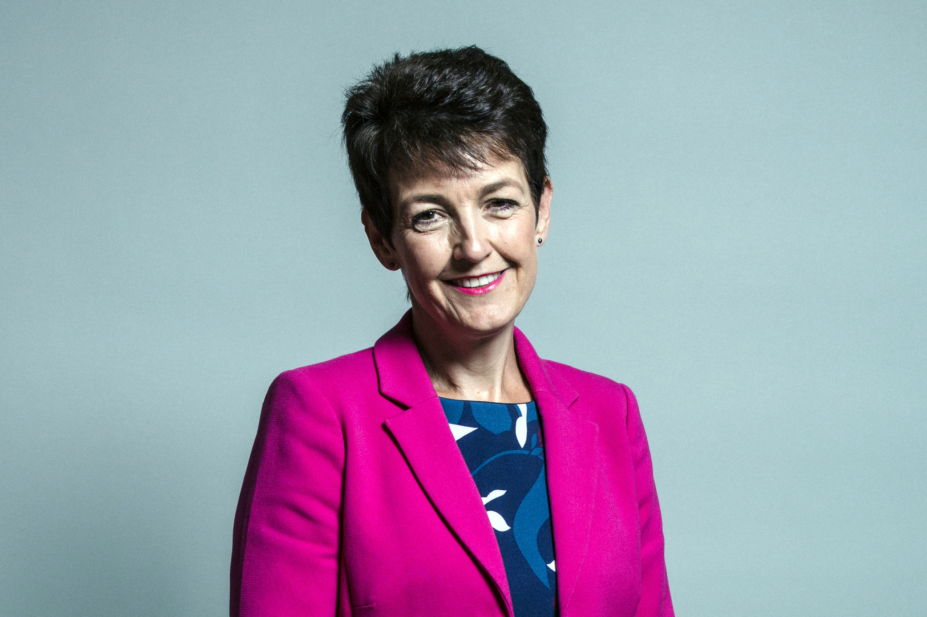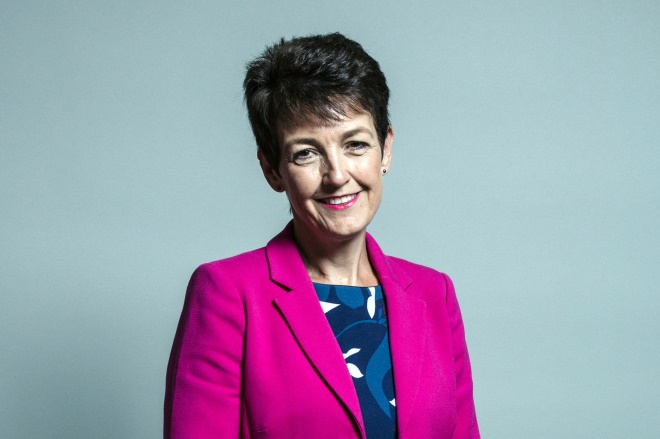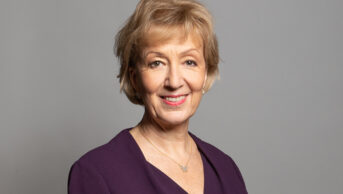
Chris McAndrew / Wikimedia Commons
Open access article
The Royal Pharmaceutical Society has made this feature article free to access in order to help healthcare professionals stay informed about an issue of national importance.
To learn more about coronavirus, please visit: https://www.rpharms.com/resources/pharmacy-guides/wuhan-novel-coronavirus

Source: Chris McAndrew / Wikimedia Commons
Jo Churchill, the pharmacy minister, said she was having conversations around “how we look after people and maintain people’s physical and mental health”
In an exclusive interview with The Pharmaceutical Journal
, Jo Churchill, the minister responsible for public health, primary care and prevention in England, said that the gap in the wellbeing support offered to pharmacists, compared with other professions, was “quite glaring” and she was having conversations about a permanent service.
The comments may indicate a change of heart in government over extending the mental health support already offered to GPs and dentists, to pharmacists, after witnessing their contribution during the COVID-19 pandemic.
The Royal Pharmaceutical Society (RPS) has been campaigning for better mental health support for pharmacists, with a survey last year revealing 80% were at a ‘high’ or ‘very high’ risk of burnout.
However, The Pharmaceutical Journal can reveal that an internal NHS assessment carried out last year found “limited evidence” that pharmacists need specialist mental health support through the NHS Practitioner Health service.
The internal NHS England scoping document was produced in January 2019 and was released under the Freedom of Information Act. It acknowledges the “changing role of pharmacists”, but claims that “there is a risk that we are allowing independent contractors to not fulfil their employer responsibilities” and explores alternative ways of providing mental health support for pharmacists (see Box).
However, Churchill was more positive in her interview. When asked whether pharmacists will be offered a permanent wellbeing service, she said: “As we come out of these times, it’s part of the conversation as to how we look after people and maintain people’s physical and mental health.
“People are tired; it’s evident from some of the letters that I’ve had from pharmacists explaining what their daily workload has been like. It’s important that we look at new systems of working, what nobody has missed and what positives we’ve got.”
She added that although pharmacists had been offered access to a mental health helpline and mentoring sessions during the COVID-19 pandemic, it had been pointed out to her by Ravi Sharma, director for England at the RPS, that pharmacists did not have dedicated support.
She said: “These are some of the things post-COVID that we need to have conversations about, because it was quite glaring. GPs said: ‘We have our own helpline’ and … pharmacy is backed by a small charity helpline.”
Elsewhere in the interview, Churchill said that a “very strong case” had been submitted to the Treasury regarding additional funding for community pharmacy in England. She added: “I have been forceful and robust in the fact that pharmacists have gone above and beyond.”
Churchill also revealed that she was responsible for ensuring that Matt Hancock, secretary of state for health and social care, mentioned pharmacy at the daily media briefings on COVID-19. She said: “It took me a couple of weeks, but I got pharmacy name-checked at the pressers. Literally, the Secretary of State went to me: ‘Yeah, I know. Pharmacy.’ You know you have landed it then.”
Read the full interview with the pharmacy minister.
Box: Revealed – the internal NHS briefing that suggests pharmacists do not need NHS mental health support
The NHS England scoping document on health and wellbeing support for pharmacists is entitled ‘Support for pharmacists – case for intervention’ and was distributed to Keith Ridge, chief pharmaceutical officer (CPO) for England, Ed Waller, NHS England director for primary care strategy, and Richard Cattell, deputy CPO for England, in January 2019.
It was drawn up to “provide some key questions and principles” on how to invite the Royal Pharmaceutical Society (RPS) to “develop the case for intervention” on why pharmacists may need access to the Practitioner Health Service (PHP), which provides 24-hour mental health and wellbeing support to doctors and dentists.
The RPS wrote to Matt Hancock, health and social care secretary, in November 2019, calling on him to include pharmacists in the service.
The paper cites an Ipsos Mori study from 2017 suggesting the prevalence of suicide among pharmacists is low at 0.02%, which it says is half that of doctors. The paper acknowledges the “changing role of pharmacists” and accepts that this could increase the risk of mental health conditions in pharmacists.
However, it adds that “there is a risk that we are allowing independent contractors to not fulfil their employer responsibilities” and asks whether “large corporates” could “work together to develop support for pharmacists working in the community”.
It states that it had already launched a health and wellbeing framework in 2018, which provides guidance to allow NHS organisations to consider new interventions to improve support for staff, which “may offer a lower cost intervention compared to a mental health treatment service, and better meet the needs of the workforce”.
The RPS said it did not want to comment on the document.
NHS England did not respond to questions from The Pharmaceutical Journal on whether this position has now changed.


